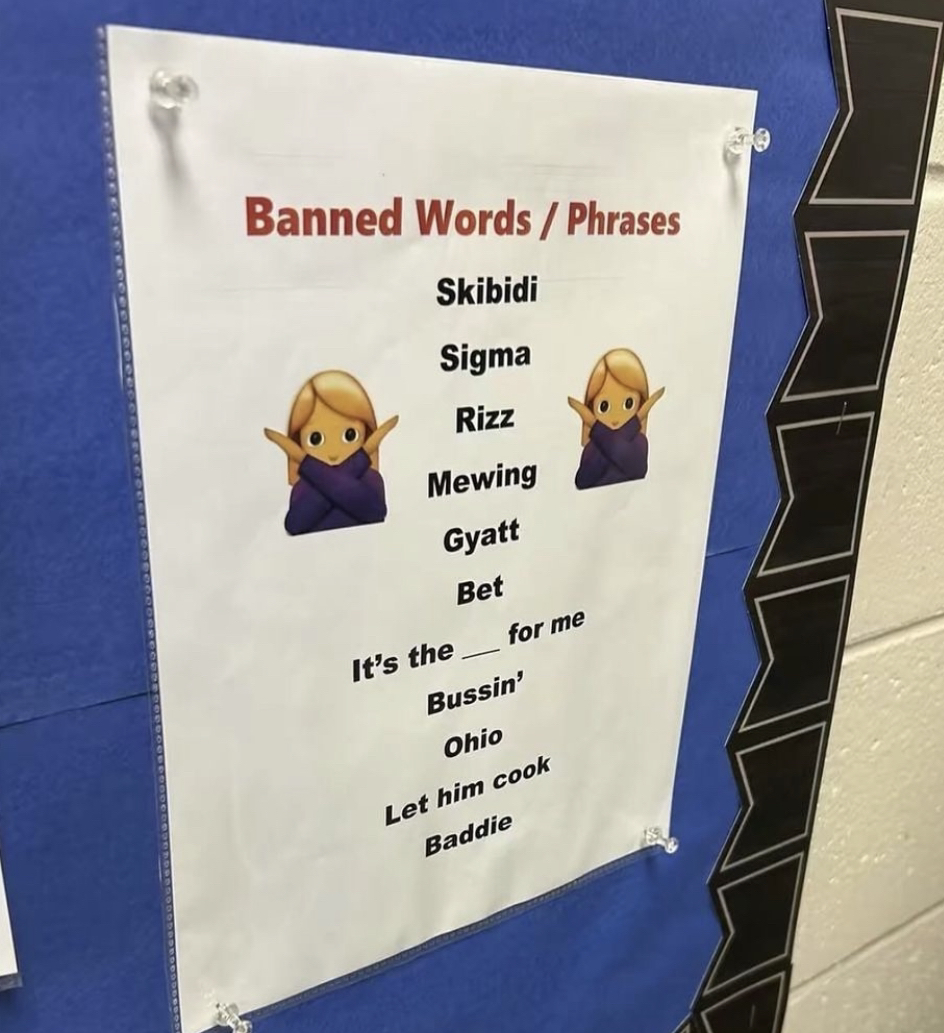this post was submitted on 16 Aug 2024
486 points (97.3% liked)
Ohio
881 readers
1 users here now
founded 2 years ago
MODERATORS
you are viewing a single comment's thread
view the rest of the comments
view the rest of the comments

Teaching the youth about freedom in the US.
I actually get it in an English class. You're there to teach them vocab not let them crutch along on slang.
I think any teacher worth their salt can teach English and draw the parallels between modern vernacular. I would like to believe teachers can do both.
I'd even go so far as to call teachers who refuse to adapt to the change in "slang" lazy.
It's not about adapting to change. It's just as valid to tell a kid they can't use "good" and "bad" in whatever they're writing or discussing. The adaptation is understanding that those slang words essentially amount to the same things because that's how kid's slang works. You're not conveying any rich meaning by repeating sigma over and over for whatever you think is good and mid for bad.
On that list the only complex idea is mewing, but the fact that it's complex means the kids who didn't understand its complexity have stripped it out. That's because it's not, in of itself, an actual slang term.
I disagree, I think the slang does convey rich meaning to the correct informal audience.
I would like to believe the slang is important code for another demographic that people can switch to.
As crazy as it may sound, I think depriving or deminishing the slang creates a divide culturally.
You're mixing up kids slang with code switching. I don't find them to be equivalent at all. That's the greater point I was making. We use the word slang pretty broadly, but in kids it's quite shallow. They rely heavily on context because they don't really have the vocabulary to do otherwise.
Then I fundamentally disagree. I think slang is a form of code switching.